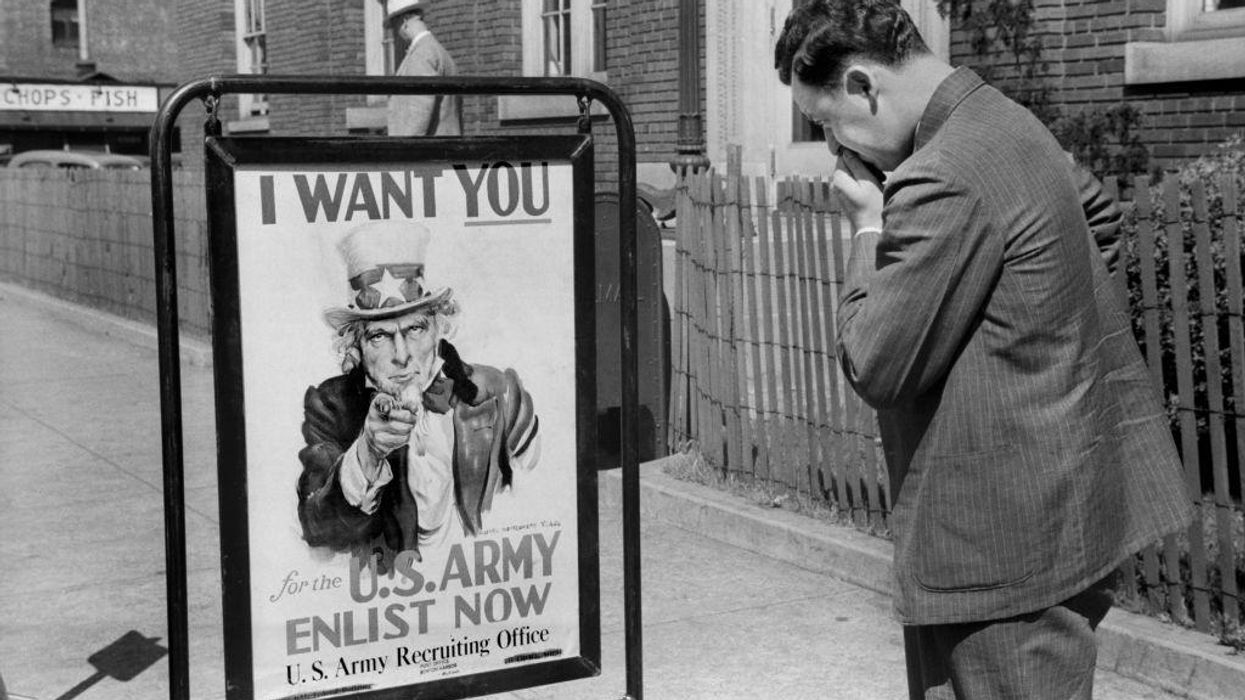
Photo by: GHI/Universal Images Group via Getty Images

Faced with a shallow talent pool and short of its recruitment goals for the year, the Army introduced a remedial program earlier this month to bolster previously ineligible recruits' physical or academic capabilities. The aim of the program is to help recruits who meet all other qualifications for enlistment to advance to basic training and thereby close some of the gap in the military's recruitment figures.
Recruits qualify for the Future Soldier Preparatory Course at Fort Jackson, South Carolina, if they previously failed to meet the Army's physical or academic requirements, but not both. Recruits must also take the Occupational Physical Assessment Test, which assesses their ability to engage in physically demanding Army training.
The academic side of the program has already yielded results, with 75% of the 333 students having improved in testing on at least one category. 48% of those enrolled in the fitness program have met their goals and qualified to advance to basic training.
Army Chief of Staff Gen. James McConville suggested that the Army will not reduce its standards in order to onboard more recruits. It will, however, do more to improve the caliber of those willing but presently unable to serve. "We have some young men and women that want to serve, that have some challenges on the academic and physical side here," McConville said on Friday at Fort Jackson. "And what we want to do is give them that opportunity."
Basic math, comprehension, and vocabulary are topics covered in some of the preparatory classes aimed at helping recruits make the academic grade. For those recruits who failed the fitness standard — those who are between 2% and 6% fatter than is accepted according to standards set for their age and sex — there are courses on nutrition, exercise, physical therapy, and healthy weight loss.
Recruits are tested every week. After three weeks, should they successfully pass the military's Armed Service Vocational Aptitude Battery Test or meet physical standards, they can be shipped to basic training.
Recruits are allowed to remain in this program for 90 days. If they do not pass in that time, then they must leave the Army.
McConville, noting some early signs of success, suggested that the program is likely to expand. Commanders expect that 10,000 recruits will be run through the classes and that the remedial program will be set up at three other bases.
"This is one of the many approaches the Army is taking to invest in America's young people," said Gen. Paul E. Funk II, commanding general, Training and Doctrine Command. "With the right instruction and professional support, we are confident they will be able to perform successfully and meet the standards expected of every Soldier."
The Army, along with every other branch of the U.S. military, has been struggling with recruitment.
Retired Lt. Gen Thomas Spoehr of the Heritage Foundation indicated in June that the military has not encountered such difficulty onboarding recruits since America left Vietnam and formally ended the draft in 1973. He stated: "This is the start of a long drought for military recruiting."
The Army's animated recruitment videos depicting lesbian weddings have not reversed the trend.
The Army indicated that as of July, it had only hit 40% of its recruiting goals for the year, despite offering its largest recruitment bonus ever of up to $50,000 to those who sign on for a six-year active-duty enlistment. Owing to low unemployment and the wide availability of jobs offering quality benefits and pay, the monetary promise attached to service in the Army is not as alluring as it might previously have been.
According to a recent NBC report detailing findings from a Defense Department survey, only 9% of young Americans eligible to serve in the military have any predisposition to do so. That is a considerably small percentage of the population, granted Army Chief of Staff Gen. James McConville's indication to Congress that only 23% of Americans ages 17-24 are qualified to serve without waiver.
More light was shed on a possible generational disinclination to fight for America in a March Quinnipiac Poll, which indicated that 48% of Americans ages 18-34 would leave the United States if the country was "in the same position as Ukrainians are now."
Jeff Groom suggested in the Spectator that the identity politics engaged in by both the Biden administration and the military have also had a chilling effect on recruitment. "Imagine you are an eighteen-year-old, white, Christian male in Georgia with a family history of military service. As you progressed through your teen years," wrote Groom, "you watched Confederate statues being torn down and military bases renamed, endless media and elitist demonization of your culture as racist and deplorable and backwards, and military and civilian leadership that thinks diversity and inclusion ... is best thing since slice bread. Would you volunteer?"
Where willpower and politics are not factors, capability is. The Army noted that 71% of youth do not qualify for service because of obesity, drugs, physical and mental health problems, misconduct, and aptitude. 40% of Americans of prime recruiting age have also been disqualified owing to their vaccination status.